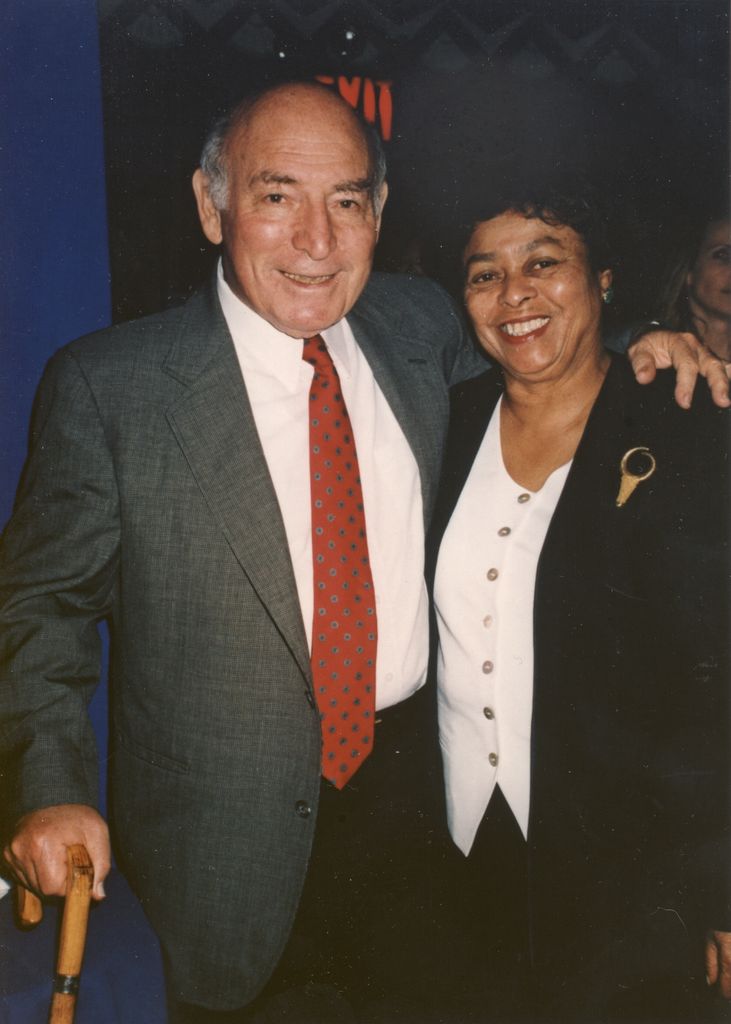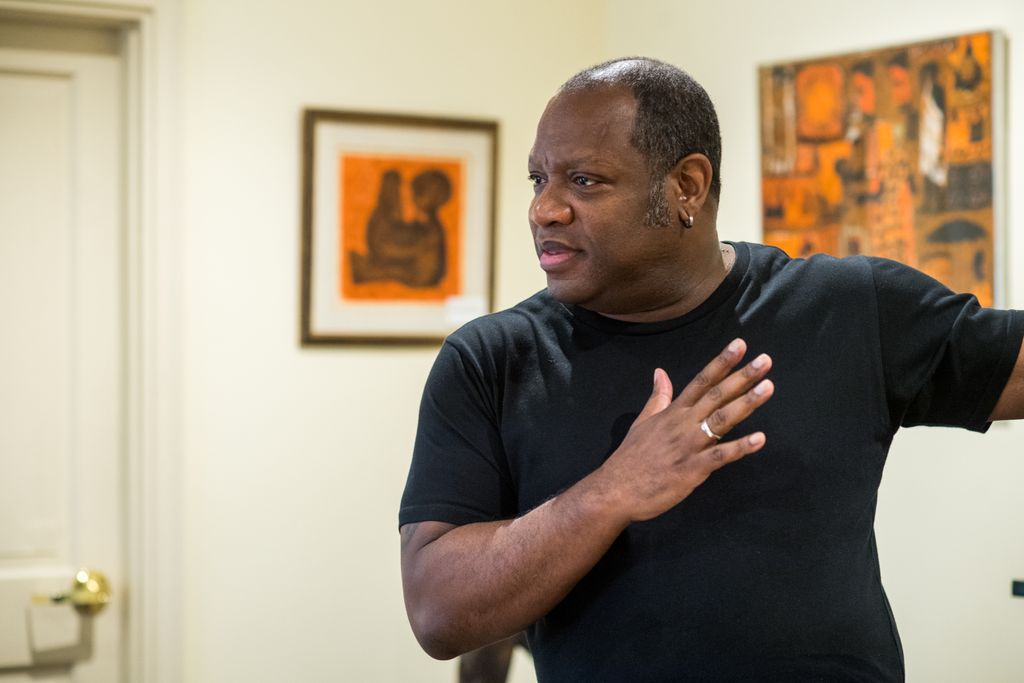Jazz Legend George Wein and BU African American Studies
How donor support has helped make a forthcoming African American Studies major and other advances possible
How donor support has helped make a forthcoming African American Studies major and other advances possible
In the year since George Floyd’s murder, there’s been a new recognition that the nation must grapple with its history of racial discrimination, violence, and enslavement. For the scholars and students of BU’s African American Studies program, however, engaging with that past is nothing new—thanks in no small part to the generous support of the late jazz impresario George Wein (CAS’50, Hon.’15). An honorary Grammy winner and noted philanthropist, Wein passed away in September 2021 at age 95. His impact on African American Studies at BU will be felt for years to come.
The program has its roots in another turbulent era: the late sixties. In the wake of protests against the war in Vietnam, the assassination of Martin Luther King, Jr. (GRS’55, Hon.’59), and the passage of civil rights legislation, BU in 1969 established the first graduate African American Studies program in the United States. But it was Wein’s endowment in 2002 of the George and Joyce Wein Chair that fueled the program’s vigorous growth.
The endowment has made a difference far beyond funding a single professorship, says the chair’s current holder, program director Louis Chude-Sokei. He is also a professor of English in the College of Arts & Sciences, African American Studies’ home on campus.

“For one thing, it was a commitment to legitimizing the program and its seriousness,” he says. “It has made it clear to CAS and the University that this program needs to be supported and taken seriously.”
The founder of the Newport Jazz Festival, Newport Folk Festival, and New Orleans Jazz & Heritage Festival, Wein grew up in Newton, Mass., and played jazz piano from a young age. After a stint in the US Army, he studied at BU—at least when he wasn’t playing piano—and started a legendary Boston jazz club, Storyville.
“I knew so many Black musicians as a kid,” Wein told arts&sciences in spring 2021. “I worshiped them, I collected their records, and when they would let me play with them, I was like a kid in teenage heaven. But then one day I was hanging out with [trumpeter] Frankie Newton, and he was in kind of a down mood. I asked him, ‘What’s wrong, Frankie?’ And he looked at me and just said, ‘George, you’ve never been Black one day in your life.’
“When he made that statement, I think it affected me completely. It led me into areas I’d never thought about,” he said. “I became a fighter for the concept of, ‘What has happened in a great country that can’t seem to correct one problem?’”
Discrimination was also something he saw up close in his personal life: his late wife, Joyce, who was Black, could not even travel to New Orleans with him in 1970 when they were working to found the jazz festival, because Louisiana law prohibited interracial marriage.

Wein decided to support African American Studies at BU to do his part in addressing racism.
“I felt that increasing their faculty to cover Black studies was important,” he said. “I would be establishing something that would become part of the future of a great university.”
Even before the uptick in attention to racism this past year, says Chude-Sokei, BU African American Studies, which also includes an undergraduate minor, was growing steadily; its average class enrollments have doubled since 2017. And the program is on its way to offering a major. “We’re putting together the paperwork,” Chude-Sokei says. “We’ve also generated some scholarships for undergraduates that we are going to be unveiling along with the major—which, again, is made possible by the resources of the Wein endowment.”
Less tangible, but perhaps just as important, is the sense of security that an endowment brings.
“One of the things that we feel all the time is that programs in African American or ethnic or LGBTQ or women’s studies, whenever we hit moments of economic distress, they get cut, or they get swallowed up,” says Chude-Sokei. “Because of George Wein, we don’t feel afraid that we’re going to be swallowed up by another department or cut. And because we don’t feel it, we’re able to keep this growth mindset—especially over the COVID year.”
That energy will be reflected in new courses, new faculty, and “a lot more international perspectives,” he says. And it will carry the impact of BU’s African American Studies beyond Boston.
Chude-Sokei has just been invited to curate a festival on Afrofuturism and Black science fiction with Carnegie Hall in New York City. The festival comes on the heels of a major award from Germany for a yearlong project involving his recordings of ambient sound in areas in the African diaspora that are associated with slavery, as well as German sites connected with Nazi history.
All of this work, he says, is more adventurous than what he could have done without the endowment. “I took some risks once I got to Boston and got the Wein Chair,” he says. “I can take risks because we have the support.”
It’s perhaps especially fitting that Chude-Sokei’s work is so intimately connected with sound, given Wein’s lifetime of contributions to the world of jazz and folk music. “For me, music is about sound and Black listening practices,” says Chude-Sokei. And for Wein, music was deeply intertwined with the African American experience.
With the 2020 launch of the Center for Antiracist Research at BU—led by Ibram X. Kendi, the Andrew W. Mellon Professor in the Humanities and a professor of history—the African American Studies program is finding new opportunities for shared work and growth.
“Having both separate but collaborative institutions is not just good for BU, but a sign of how big and important this stuff is,” says Chude-Sokei. “There’s a lot of excitement to go around.”
Please visit bu.edu/cas/alumni/giving or contact Meghan Frost, CAS assistant dean, at mmfrost@bu.edu or 617-358-6376 to learn more about giving to CAS.